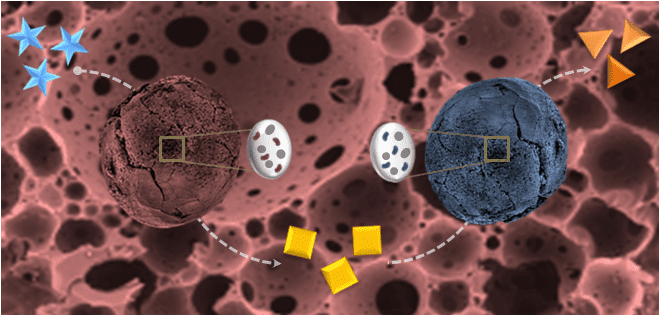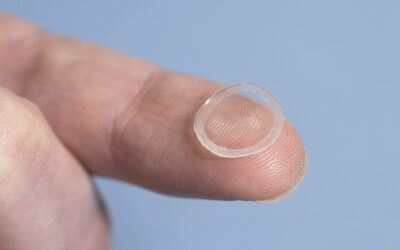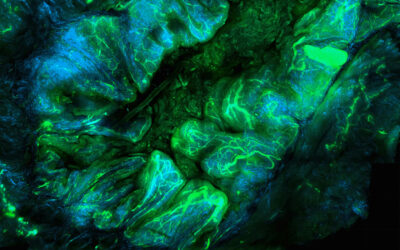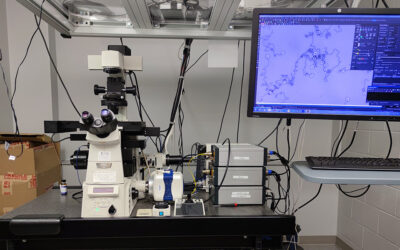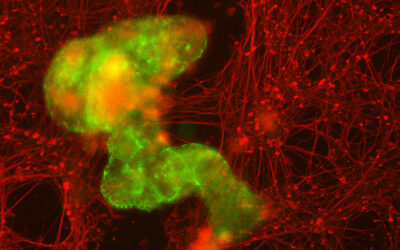Micro-organisms are highly efficient biocatalysts. Their catalytic properties are essential tools for applications in a wide range of industrial fields such as the pharmaceuticals, cosmetics, and food and beverage industries.
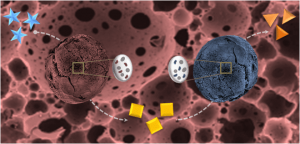
Schematic of porous beads with encapsulated bacteria.
However, their control for multitasking still remains a great scientific challenge. Researchers from the Centre de Recherche Paul Pascal (UPR CNRS 8641) succeeded in encapsulating bacteria inside porous materials maintaining their growth, viability, and biocatalytic properties.
By combining high internal phase emulsion (HIPE) and sol–gel chemistry, monodisperse millimetric porous beads are produced. Bacteria colonize the beads microstructure and grow inside these hosts making use of the accessible free volume. In order to prevent the micro-organisms from leaking out, a silica shell is synthesized around these beads by a sol-gel process at neutral pH. This shell is porous enough to allow for the diffusion of small molecules within the beads while preventing bacteria leaching.
These living beads maintain a high catalytic activity during several days. More interestingly, the beads are reusable for successive catalysis. In addition, by combining beads containing different bacteria expressing different enzymes, cascade reactions where the enzymes and the cells act in synergy are demonstrated. The reaction kinetics is tuned at ease by varying either the bead numbers or their sizes.
These living biocatalysts offer thus promising solutions for the construction of microbial consortia of potential interest for industrial use.
Text kindly provided by the Authors.

